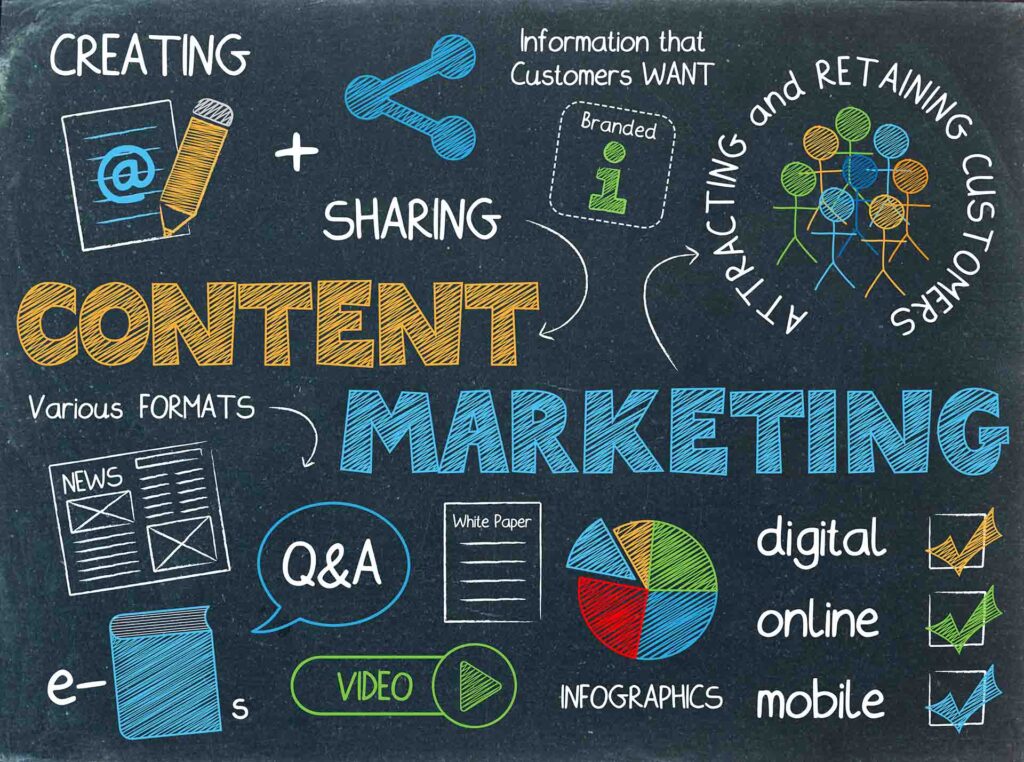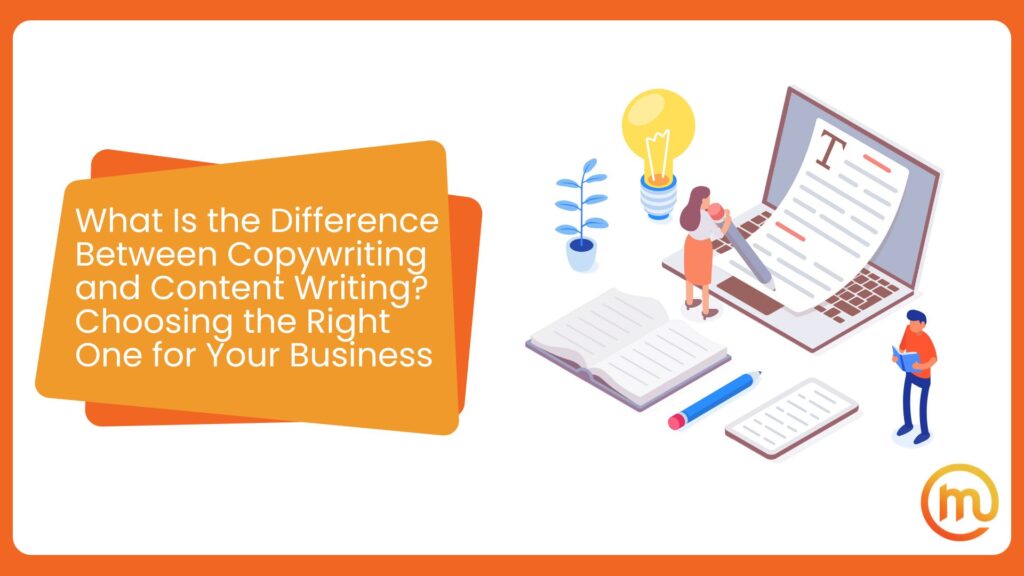If you’re developing a new business, choosing the right marketing services and an online advertising agency is of huge importance. You’ve likely heard that copywriting and content writing are crucial parts of a marketing strategy, but do you actually know – what is the difference between copywriting and content writing? This is something you must understand before you hire marketers to create an online presence for your brand. Let’s dive into this topic and untangle the meaning behind these two terms.
What Is the Difference Between Copywriting and Content Writing?
Copywriting and content writing are crucial parts of a quality digital marketing strategy. You have probably heard about these terms, but do you actually know what they mean? Many business owners think they are synonymous and don’t know which one to incorporate into their advertising.
While it is true that these marketing genres have some similarities, it’s important to understand their differences in order to advertise your brand properly and implement good marketing tactics that will resonate with your target audience. Depending on your current marketing goals, you may need one more than the other. But how will you know which one?
These two marketing genres differ in goals, purposes, and tone. Copywriting is used to inspire the user to take commercial action, while content writing provides educational value to the reader in order to build a relationship with a brand. This may sound confusing to you now, but it won’t once we break down the basics of copywriting vs. content writing to help you figure out which marketing services you should book.

What Is Copywriting?
Copywriting is the art of creating a copy, a short text that is designed to inspire the reader to take a certain action that’s beneficial to your business – whether it’s to buy a product or a service, sign up for a newsletter, or maybe even download an ebook. Copywriting has a sales-y tone, it’s short and direct, and it has to be engaging and persuasive. Every good copy contains a call to action (CTA) – a phrase that works as a final push that makes the reader want to take action immediately.
Copywriting Combines Creativity With Psychology
How many times have you seen a catchy ad slogan that made you want to buy whatever it was that the ad advertised? Have you ever thought about how carefully those words are selected to appear in the copy? It’s not just about coming up with a fun phrase – a copy is so much more than that. Sure, it requires a certain level of creativity to be able to come up with something people will love, but there’s more to it.
Copywriters need to understand the psychology behind purchasing – because the copy has to reach the readers emotionally. What does this mean? It’s quite simple. The key to good copywriting is understanding your target audience, their needs and wishes. Copywriting doesn’t focus on explaining why a product or service is good – it tells you what benefits you will get if you purchase said product or service, making you want to buy it.
Where Can You Find Examples of Copywriting?
Short, catchy texts – this is essentially describing countless advertising campaigns with engaging slogans. Ads are the most common example of copywriting, but not the only one – you can find copies as parts of email newsletters, product descriptions, and importantly – social media posts. We all know social media can influence people, so it’s understandable that marketers rely on it so much for their work.

What Is Content Writing?
Content writing is a content strategy that aims to provide useful information to the readers – whether to educate them on a certain topic, solve a problem they may have, make a decision, or even simply to provide entertaining facts. So, as opposed to copywriting and its sales-y tone, content writing has an educational tone. It has to provide value. This aspect of content marketing is done to build a relationship with a reader, establish a brand as a reliable, reputable source in its industry, and increase brand awareness.
Obviously, content writing requires a lot of research in order to find valuable information and filter it to provide the reader with the essence of a topic. Every good content writer will tell you that research is the hardest part of the job – writing comes easy when you’ve researched the topic well enough and learned all there is to know about it. Depending on the complexity of your topic, it can take more or less time to find valuable sources and analyze all the data you find.
SEO Is a Crucial Part of Good Content Writing Strategies
Search engine optimization, or SEO, is one of the most important things in content writing. Of course, a good content writer needs to be able to write an engaging piece of content, but that content won’t do much good if it doesn’t reach the target audience. That’s where SEO comes to the scene – SEO is a set of marketing tactics used to optimize content in order to rank it high on search engine result pages.
So, if you’re thinking of hiring a certain content writing agency, be sure to ask them if they offer SEO services as well. Your brand will need them – it doesn’t matter if you’re a small business or a large company, there’s no quality content marketing without SEO.
Where Can You Find Examples of Content Writing?
The most common form of content writing is a blog post. Nowadays, you can find a blog section on every well-maintained business website. Blogs are long-form content – they usually contain 500-2500 words. Apart from blog posts, content writing produces articles, ebooks, case studies, and even social media posts and email newsletters – here we can see an overlap with copywriting.

Copywriting vs. Content Writing – Let’s Compare the Differences
Now that you’re caught up on the basics, what is the difference between content writing and copywriting in practice? We will compare a few key points in which these marketing concepts differ – this will help you figure out what your business needs!
| COPYWRITING | CONTENT WRITING | |
| PURPOSE | To make readers take action | To build relationships and trust with readers |
| TONE | Direct, persuasive, sales-y | Conversational, informational, engaging |
| OUTCOME MEASURED BY | Conversion rates and sales numbers | Engagement metrics and long-term ROI |
| LENGTH | Short, focused on headlines | Long, in-depth texts |
| SEO | Can be optimized, but SEO isn’t the focus | Must be optimized, focus on SEO to increase organic traffic |
| COST | More expensive | More affordable, but takes longer to generate ROI |
Reach Out to Made Online – We Will Tailor an Advertising Strategy Based on Your Business Needs
While we have you here, why don’t you check out the marketing services that our online advertising agency, Made Online, offers? We have years of experience in the industry and have worked with numerous clients who are happy with the way we handled their digital advertising needs. Our dream team has several SEO specialists, as well as plenty of skilled content writers who can create brilliant blogs for your website.
Don’t let your competitors outshine you online – let us help you find your place in the digital world. Contact us today, and we can schedule a free website audit that will help us pinpoint your weak spots. After that, we can get to curating the perfect marketing strategy for your brand – are you ready to get made?

